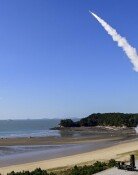[Op-Ed] Political Abuse of Public Opinion Surveys
[Op-Ed] Political Abuse of Public Opinion Surveys
Posted June. 30, 2009 08:13,
Bill Clinton is an American president who often resorted to public opinion surveys. He ordered one every week and every evening whenever a severe political controversy arose. Instead of turning to political principles, he clung to surveys to see which decisions gained public support. His addiction to such polls led to the saying, Ronald Reagan used surveys as a means to spread his beliefs, but Clinton used them to find what kind of beliefs he should have.
Korea is one of the few countries where public opinion polls exert powerful political influence. In the 2002 presidential campaign, the Millennium Democratic Party gambled by selecting its candidate solely through public opinion surveys. Apart from Taiwan and Korea, it is rare to find another country that reflects survey results in selecting candidates for top official posts. Despite their influence, public polls in Korea have low credibility, especially phone surveys since only half the population has registered numbers and those that only use mobile phones are not included. Given the very low response rate, many experts doubt the credibility of survey results.
Questions have arisen over the credibility of independent public opinion surveys conducted by lawmakers of the main Democratic Party who are on the Peoples Committee for Media Development June 20. Only 13.1 percent responded to the survey conducted on 1,000 adults above age 19. Of the respondents, 43.4 percent said they either knew little or nothing about the media bill. The surveyors intentionally placed questions with negative expressions such as media domination by conglomerates, public opinion monopolization by large newspaper companies, and undermining the foundation of democracy in an apparent attempt to affect the survey results. Consequently, there is little doubt that the survey was designed with a bias.
Apart from dubious credibility, lawmakers and experts would lose their jobs if the fate of a complicated bill such as the one on media revision, which requires a high level of expertise, is decided by public opinion surveys alone. The Democratic Party will have nothing to say if the public calls the National Assembly useless. If government policy was determined by surveys, Korea would not have the cross-country Gyeongbu Expressway and the newly restored Cheonggye Stream running through Seoul. If parliament with lawmakers appointed by legitimate elections fails to function because of an unconstructive attempt by the opposition party to thwart every bill, it will take a long time for Korea to become an advanced nation.
Editorial Writer Kwon Sun-taek (maypole@donga.com)







